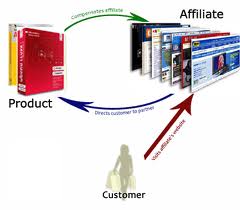Understanding the Importance of Affiliate Marketing Disclosure
Understanding the Importance of Affiliate Marketing Disclosure
Affiliate marketing has become an increasingly popular way for individuals and businesses to earn money through online platforms. It allows content creators and influencers to promote products or services and earn a commission for every successful sale made through their unique affiliate links. While affiliate marketing has the potential to be a lucrative venture, it is crucial to understand and adhere to the rules and guidelines surrounding disclosure.
Affiliate marketing disclosure refers to the practice of informing viewers, readers, or consumers that a content creator or influencer is promoting products or services for which they will receive a commission. This disclosure acts as a transparent signal, ensuring that the audience understands the underlying motivations behind the promotional content.
Transparency and honesty play a significant role in the success of any affiliate marketing strategy. Disclosing affiliate partnerships builds trust with the audience, which in turn strengthens the relationship between the content creator and their followers. It establishes accountability and ethical practices, ensuring that content creators are not misleading their audience or taking advantage of their trust.
From a legal standpoint, the Federal Trade Commission (FTC) in the United States and other regulatory bodies worldwide require that affiliates disclose their connections to the promoted products or services clearly. Failure to comply with these guidelines may result in penalties and legal repercussions. The goal of these regulations is to protect consumers and ensure that they can make informed purchasing decisions.
Disclosures can take various forms, depending on the platform and the nature of the content. Content creators must choose the appropriate method of disclosure that best suits their medium. For example, on a blog, disclosures may be included within the written text, either at the beginning of the article or directly above any affiliate links. On videos, content creators often include verbal disclosures at the beginning or during the promotion.
The disclosure should be clear, conspicuous, and readily seen or understood by the viewer or reader. It should explicitly state the nature of the affiliate relationship, such as affiliate links or sponsored content. Simply relying on vague statements like “in collaboration with” or “in partnership with” may not sufficiently inform the audience about the financial incentive involved.
Understanding the importance of affiliate marketing disclosure is not only essential for ethical reasons but also for the long-term success and sustainability of a content creator’s brand. Influencers who consistently disclose their affiliate partnerships are more likely to maintain the trust and support of their audience, allowing for mutually beneficial relationships with both consumers and brands.
In conclusion, affiliate marketing disclosure is a critical aspect of ethical and legal affiliate marketing practices. It provides transparency, builds trust with the audience, and ensures compliance with regulatory guidelines. As affiliate marketing continues to evolve and grow, content creators and influencers must prioritize proper disclosure to maintain their credibility and foster meaningful connections with their audience.









